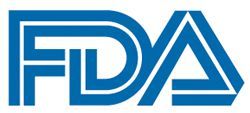FDA Grants Fast Track Designation to Batiraxcept for Advanced or Metastatic Clear Cell RCC
The FDA has granted a fast track designation to batiraxcept for the treatment of patients with advanced or metastatic clear cell renal cell carcinoma who have progressed after 1 or 2 prior lines of systemic therapy that include both immuno-oncology–based and VEGF TKI–based therapies, either in combination or sequentially.

The FDA has granted a fast track designation to batiraxcept (AVB-S6-500) for the treatment of patients with advanced or metastatic clear cell renal cell carcinoma (RCC) who have progressed after 1 or 2 prior lines of systemic therapy that include both immuno-oncology (IO)–based and VEGF TKI–based therapies, either in combination or sequentially.1
The designation was based on data from the phase 1b AVB500-RCC-003 trial (NCT04300140), which showed that previously treatment patients with clear cell RCC who received batiraxcept plus cabozantinib (Cabometyx; n = 26) experienced an objective response rate (ORR) of 57%. The median progression-free survival (PFS) was 11.4 months. Among the 26 evaluable patients, 14 had progressed on both IO-based and VEGF TKI–based therapies.
“The majority of patients with kidney cancer develop resistance to frontline treatment and there is a clinical need for novel agents to improve upon treatment options in the refractory setting,” lead investigator Kathryn Beckermann, MD, PhD, assistant professor, Division of Hematology and Oncology, Vanderbilt University Medical Center, stated in a press release. “Response rates to single agent targeted kinase inhibitors are approximately 30%, with a PFS of approximately 7 months. The early data seen with batiraxcept including biomarker development, ORR, and PFS are promising.”
The ongoing phase 1/2 AVB500-RCC-003 trial is evaluating the safety and efficacy of batiraxcept monotherapy, in combination with cabozantinib, and in combination with cabozantinib and nivolumab (Opdivo) in patients with advanced or metastatic clear cell RCC.2
The trial is enrolling patients who are at least 18 years old with histologically confirmed advanced or metastatic clear cell RCC who have progressed on at least 1 frontline treatment (part A), have had no prior systemic treatment (part B), and are not amenable to curative intent therapy (part C). Patients need to have at least 1 measurable lesion per RECIST v1.1 criteria, an ECOG performance status of 0 or 1, adequate bone marrow, liver, and kidney function, and a live expectancy of more than 12 weeks.
Patients who received prior treatment with cabozantinib are excluded from part A of the trial, and those who received prior nivolumab are not allowed in part B. Other key exclusion criteria include concurrent anticancer therapy or any other interventional treatment, symptomatic central nervous system metastases, active gastrointestinal disease that would affect the absorption of cabozantinib, or nephrotic range proteinuria at screening.
In the phase 1b, part A portion of the trial, patients received 15 mg/kg of batiraxcept (n = 16) or 20 mg/kg of batiraxcept (n = 10) once every 2 weeks in combination with 60 mg of cabozantinib per day. Once the recommended phase 2 dose (RP2D) of batiraxcept is established, investigators will further examine the agent in phase 2 of the trial in combination with cabozantinib (part A), in combination with cabozantinib and nivolumab (part B), and as a single agent (part C).
The co-primary end points of the trial are safety, RP2D, and antitumor activity.
Regarding safety, investigators observed no dose limiting toxicities at the 15 mg/kg or 20 mg/kg doses of batiraxcept.
“A review of the literature suggests that the clinical activity of cabozantinib is lower in those patients who have progressed following a VEGF-TKI–based therapy compared with patients who have progressed on IO or IO/IO therapy,” Gail McIntyre, PhD, DABT, chief executive officer of Aravive, said. “Understanding the [AVB500-RCC-003] data has allowed us to identify the most appropriate patient population in which to evaluate batiraxcept in combination with cabozantinib and potentially the quickest path to approval in this population with an unmet medical need.”
References
- Aravive announces fast track designation of batiraxcept for treatment of ccRCC. News release. Aravive. November 29, 2022. Accessed November 30, 2022. http://bit.ly/3EjnW6
- Safety and efficacy study of AVB-S6-500 (batiraxcept) in patients with advanced or metastatic clear cell renal cell carcinoma. ClinicalTrials.gov. Updated August 9, 2022. Accessed November 30, 2022. https://clinicaltrials.gov/ct2/show/NCT04300140



